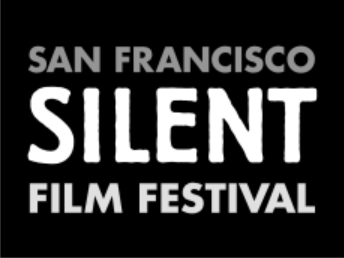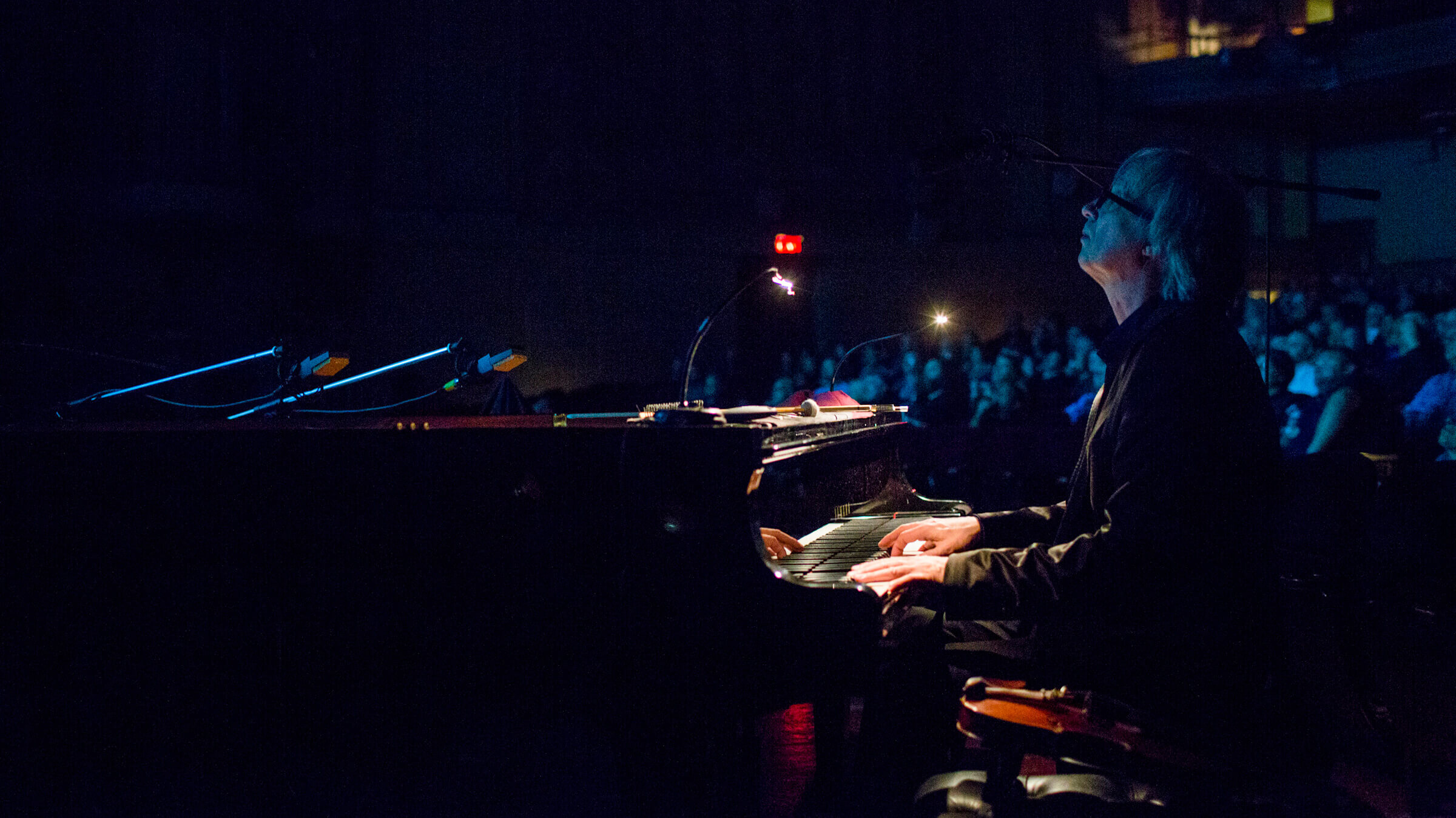In 2018, Guenter Buchwald celebrates his fortieth anniversary as a film accompanist. Since 1978, this acclaimed composer, conductor, musical director, and multi-instrumentalist has played for some three thousand films, making him both a pioneer and a veteran. He has performed as a solo artist, as half of a musical duo, and as a member of a trio and a small ensemble at film festivals across Europe as well as Asia and the United States. Buchwald made his first appearance at the San Francisco Silent Film Festival in 2013, where, over the years, he has accompanied films as diverse as Dragnet Girl, The Italian Straw Hat, and The Sign of Four. This year, he plays for another Sherlock Holmes film as well as for films from India, Japan, and France.
You once mentioned that you try to create an “audible expression” or “acoustic equivalent” for the films you accompany. What you see on film is either physical or psychological movement. In terms of the physical, if you see a train coming or footprints or steps, you must link the music to that movement. In terms of the psychological, you might see somebody gasp or sigh; then again, you link the music to that sense of movement. When I am watching a person in a film, I give that character an audible expression, or acoustic equivalent. The same thing can be said for a situation in a film. It is an equivalence of what you expect to hear. Sometimes in a film you might only see a character’s face, that they are suffering. That is an inward expression. I try to bring that expression outward. Sometimes what you see is what you hear. Sometimes, it is a translation of what you suppose you hear. Accompanying a film is like the work of someone who translates a text.
Your repertoire has included everything from classical Baroque to contemporary jazz. How does musical flexibility aid in accompanying a film? I grew up with all kinds of music. I grew up with classical music, jazz, French chanson, and the Beatles. We only had one radio station, and everything came on it. When I started in music, I was the concertmaster of a classical orchestra, as a violin player. After that, I went to Brittany and was a member of a folk band. Somebody saw me playing and asked me to join a Baroque orchestra. I have friends who are composers, and they have asked me to play their modern compositions. When I played for a silent film for the first time, I thought “I can use everything.” I had accompanied The Hunchback of Notre Dame. In that film, you might expect to hear medieval church music. I also used a bit of Berlioz, and Bartók, which I was studying at the time. I even used an Irish tune when Esmeralda is dancing.
Do you think any kind of friction arises when you mix and match different styles? It helps me to have the choice. It is my job to bring everything into a mood. I have never felt things break apart if I play in a Baroque manner and then five minutes later I play Bartók, because I am not really playing Bartók, but rather in the mood of Bartók.
The range of films you accompany is similarly varied, from melodrama and slapstick to German Expressionist horror. Has your varied musical background aided you? Yes. I first started playing for German Expressionist films, like Nosferatu. Though every film has its difficulties and challenges, that film is “easy” to accompany—but it’s also one of those films that changed my approach to musical interpretation, leaving the “surface horror“ and going toward an abysmal mirror of lost souls. A variety of musical styles or experiences make it easier to accompany just about any silent film. I do have favorites. I like Northern European films, and Swedish films, especially Victor Sjöström’s films. And Japanese films. I listen to Japanese music before I play for a Japanese silent, which gives me a feeling for a mood. The most difficult for me is slapstick. The musical expectation is a ragtime sound, and it is difficult to break the expectation.
Generally speaking, how do you approach a film which is new to you? Since I improvise, it depends on how much time I have to prepare the music, which means knowing the film, knowing the genre, and knowing the film’s ending, all of which serve to give the film a certain mood. Some films might be a Schubert mood, or a Beethoven mood, or a Bartók/Stravinsky mood. I make a choice. I find a musical language, or style. I develop the details, step-by-step. Watching the film ahead of time, I might notice something I wish to call to the attention of the viewer through a musical comment. Before there were screeners and DVDs, I might have had to play for a film the first time I see it. Once, in Switzerland, I was given a film to play only a couple hours ahead of time. I spent that time walking through the town, bringing my musical mind together. If I am composing for a film, it could take me a year or more to bring something together.
How about a film like The Lighthouse Keepers, which Marcel Carné described as “unprecise but not obscure”? I have known this film a long time. The Carné quote describes the film’s cinematography. It is a contemporary looking film, in a sense. My approach is autobiographical. As I mentioned, I lived for a time in Brittany and was the member of a folk group. This was when I was in my early twenties. Living there, it was moving to simply watch the tides, and the sea. As a member of a folk group, we played for Brittany dancers. I know the dances of the region. I like to play that kind of music for The Lighthouse Keepers. And, I feel close to Grémillon, who loved the sea…
Image credit: Pamela Gentile

